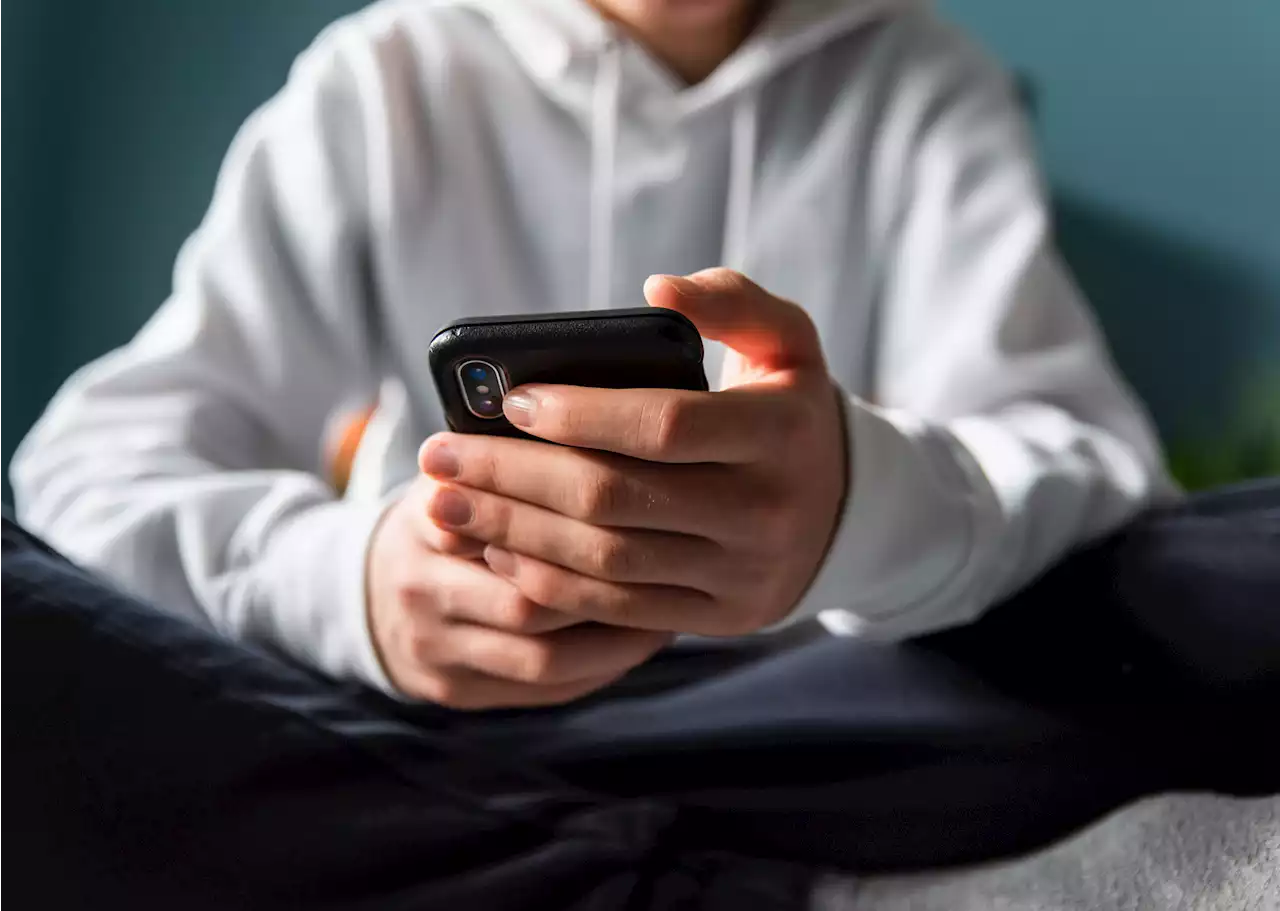If you’ve been on social media recently, you won’t have been able to avoid people talking about how bad social media is, particularly for children's mental health. But StuartJRitchie has looked at the evidence, and he's not convinced. Here's why:
One of the things that you’ll have noticed in all the above discussion is that they were on undergraduate students and adults . There are also several other studies of adults that I don’t have space to cover here – you can read about them inwhere he and his colleagues collect together all the available evidence.
That natural experiment often comes in the form of broadband. It turns out that, when countries upgrade their internet speeds, they tend to do so at different times in different regions. And that allows researchers to ask if the people in regions that had faster internet earlier had noticeable effects on their mental health.
When they ran the analysis over the entire sample, there weren’t any effects. But then, when they split the data into a younger and older group , and then split them again by sex, they started to see some effects. Since I can’t find any plan the researchers posted online before the study started, it’s not clear whether they always intended to make this split – but let’s assume they did.
Österreich Neuesten Nachrichten, Österreich Schlagzeilen
Similar News:Sie können auch ähnliche Nachrichten wie diese lesen, die wir aus anderen Nachrichtenquellen gesammelt haben.
 The social media diet: A scoping review to investigate the association between social media, body image and eating disorders amongst young peopleBackground Eating disorders are a group of heterogenous, disabling and deadly psychiatric illnesses with a plethora of associated health consequences. Exploratory research suggests that social media usage may be triggering body image concerns and heightening eating disorder pathology amongst young people, but the topic is under-researched as a global public health issue. Aim To systematically map out and critically review the existing global literature on the relationship between social media usage, body image and eating disorders in young people aged 10–24 years. Methods A systematic search of MEDLINE, PyscINFO and Web of Science for research on social media use and body image concerns / disordered eating outcomes published between January 2016 and July 2021. Results on exposures (social media usage), outcomes (body image, eating disorders, disordered eating), mediators and moderators were synthesised using an integrated theoretical framework of the influence of internet use on body image concerns and eating pathology. Results Evidence from 50 studies in 17 countries indicates that social media usage leads to body image concerns, eating disorders/disordered eating and poor mental health via the mediating pathways of social comparison, thin / fit ideal internalisation, and self-objectification. Specific exposures (social media trends, pro-eating disorder content, appearance focused platforms and investment in photos) and moderators (high BMI, female gender, and pre-existing body image concerns) strengthen the relationship, while other moderators (high social media literacy and body appreciation) are protective, hinting at a ‘self-perpetuating cycle of risk’. Conclusion Social media usage is a plausible risk factor for the development of eating disorders. Research from Asia suggests that the association is not unique to traditionally western cultures. Based on scale of social media usage amongst young people, this issue is worthy of attention as an emerging global pu
The social media diet: A scoping review to investigate the association between social media, body image and eating disorders amongst young peopleBackground Eating disorders are a group of heterogenous, disabling and deadly psychiatric illnesses with a plethora of associated health consequences. Exploratory research suggests that social media usage may be triggering body image concerns and heightening eating disorder pathology amongst young people, but the topic is under-researched as a global public health issue. Aim To systematically map out and critically review the existing global literature on the relationship between social media usage, body image and eating disorders in young people aged 10–24 years. Methods A systematic search of MEDLINE, PyscINFO and Web of Science for research on social media use and body image concerns / disordered eating outcomes published between January 2016 and July 2021. Results on exposures (social media usage), outcomes (body image, eating disorders, disordered eating), mediators and moderators were synthesised using an integrated theoretical framework of the influence of internet use on body image concerns and eating pathology. Results Evidence from 50 studies in 17 countries indicates that social media usage leads to body image concerns, eating disorders/disordered eating and poor mental health via the mediating pathways of social comparison, thin / fit ideal internalisation, and self-objectification. Specific exposures (social media trends, pro-eating disorder content, appearance focused platforms and investment in photos) and moderators (high BMI, female gender, and pre-existing body image concerns) strengthen the relationship, while other moderators (high social media literacy and body appreciation) are protective, hinting at a ‘self-perpetuating cycle of risk’. Conclusion Social media usage is a plausible risk factor for the development of eating disorders. Research from Asia suggests that the association is not unique to traditionally western cultures. Based on scale of social media usage amongst young people, this issue is worthy of attention as an emerging global pu
Weiterlesen »
 Utah is first US state to limit teen social media accessOne of the bills will give parents full access to their children's online private messages.
Utah is first US state to limit teen social media accessOne of the bills will give parents full access to their children's online private messages.
Weiterlesen »
 Utah is first US state to require parental consent for under-18s using social mediaThe new laws will also allow parents or guardians to have access to their children's posts. And minors will be blocked from accessing their accounts between 10.30pm and 6.30am unless a parent permits that the time restriction can be lifted.
Utah is first US state to require parental consent for under-18s using social mediaThe new laws will also allow parents or guardians to have access to their children's posts. And minors will be blocked from accessing their accounts between 10.30pm and 6.30am unless a parent permits that the time restriction can be lifted.
Weiterlesen »
 New Utah Laws Seek to Restrict Children’s Social Media UsageChildren and teens in Utah would lose access to social media apps if they don’t have parental consent and face other limits under a first-in-the-nation law designed to shield young people from the addictive platforms
New Utah Laws Seek to Restrict Children’s Social Media UsageChildren and teens in Utah would lose access to social media apps if they don’t have parental consent and face other limits under a first-in-the-nation law designed to shield young people from the addictive platforms
Weiterlesen »
 Join The Economist’s social-media team in LondonThis 12-month paid fellowship might be of interest if you have junior experience as a journalist, perhaps through internships or a university newsroom, or have told engaging stories online
Join The Economist’s social-media team in LondonThis 12-month paid fellowship might be of interest if you have junior experience as a journalist, perhaps through internships or a university newsroom, or have told engaging stories online
Weiterlesen »
 Maine School Board Member Resigns After Controversy Over Social Media PostsRyan McQueen, a member of the RSU 21 school board in Maine, has resigned over allegedly sharing offensive comments on social media. McQueen had recently been involved in controversy when people in the community found sexist, homophobic and racist comments on several of his social media accounts. “The posts and memes that were shared on social media can be harmful…
Maine School Board Member Resigns After Controversy Over Social Media PostsRyan McQueen, a member of the RSU 21 school board in Maine, has resigned over allegedly sharing offensive comments on social media. McQueen had recently been involved in controversy when people in the community found sexist, homophobic and racist comments on several of his social media accounts. “The posts and memes that were shared on social media can be harmful…
Weiterlesen »
